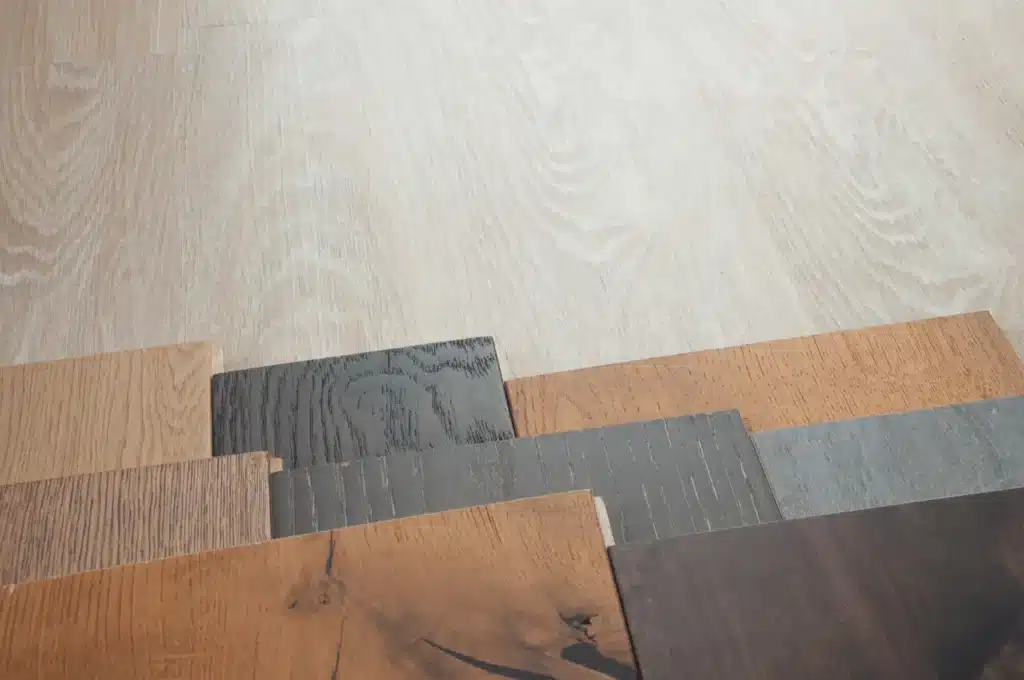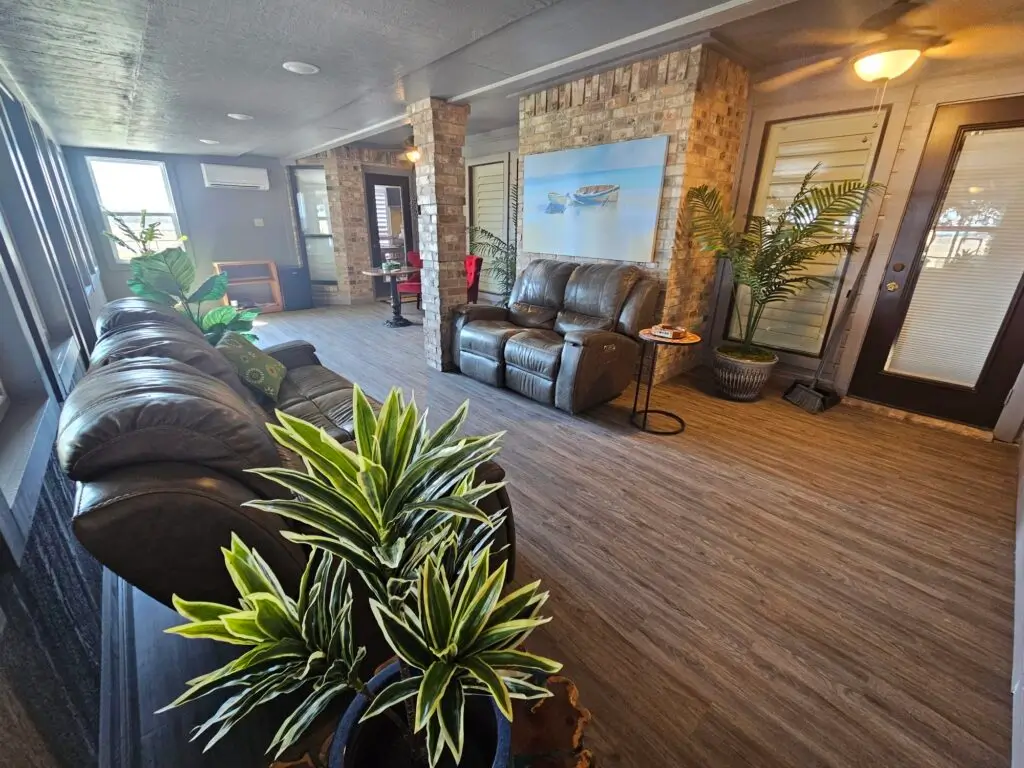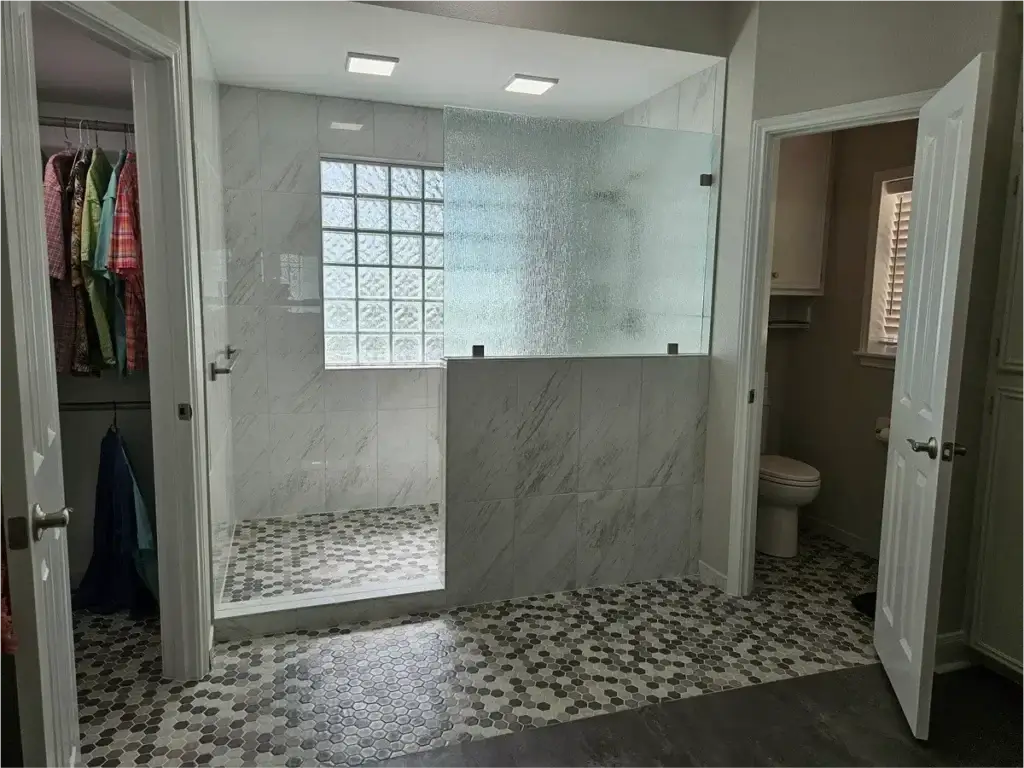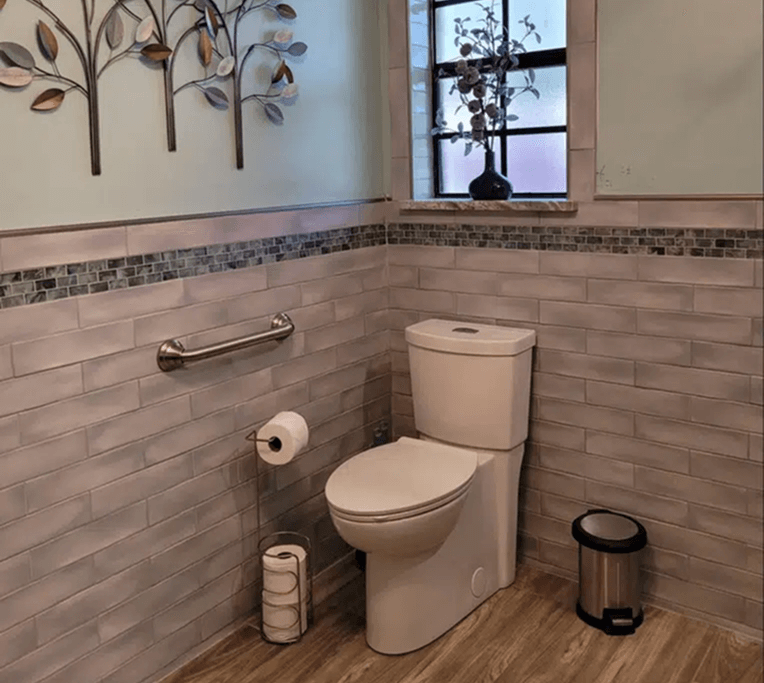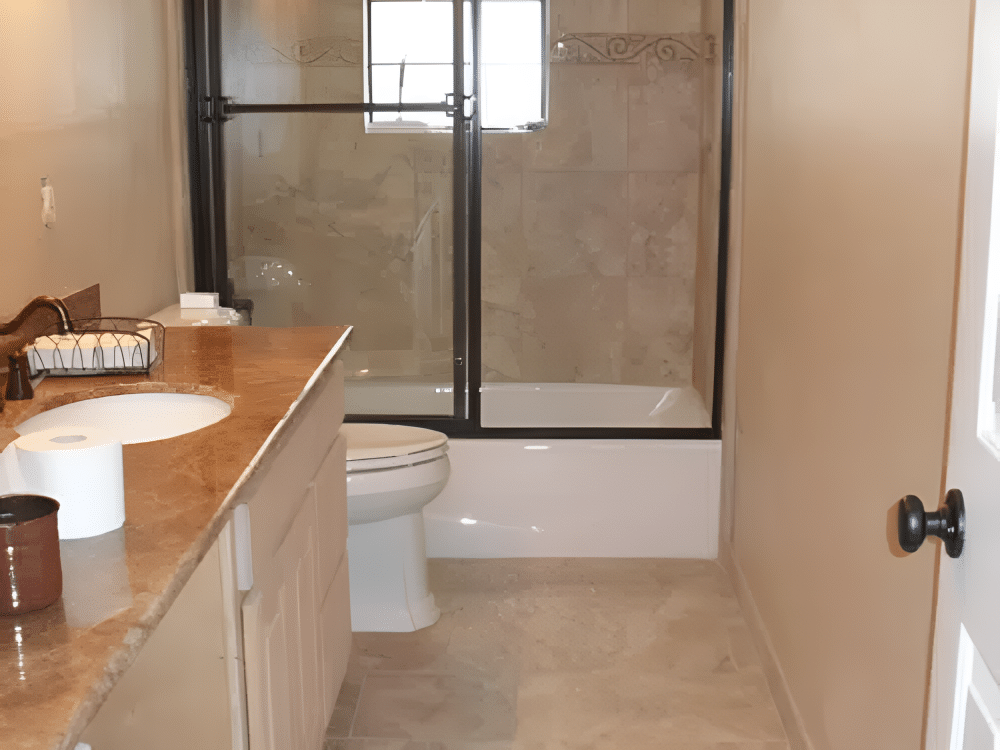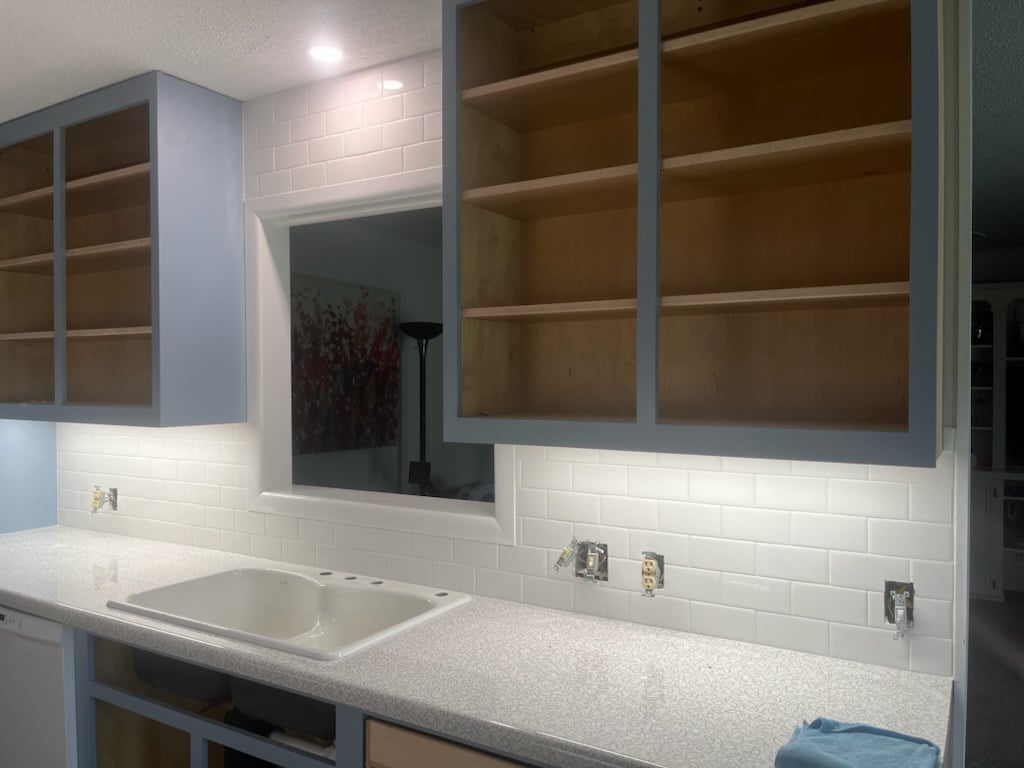In the realm of modern flooring, numerous options vie for homeowners’ attention. Among them, LVP flooring stands out as a versatile, affordable, and highly appealing option. But what is LVP flooring? If you’ve found yourself pondering this question, you’re in the right place. This comprehensive guide is designed to provide you with deep insights into the world of LVP flooring.
What Does LVP Stand For?
The acronym LVP is short for Luxury Vinyl Plank. When you hear about Luxury Vinyl Plank flooring, it refers to vinyl flooring designed in planks, replicating the aesthetic of hardwood floors while offering the durability and flexible maintenance of vinyl. However, within the vinyl plank flooring world, there exist other acronyms such as LVT, WPC, and SPC. As we delve deeper, we’ll explore these terms and what they imply for your flooring choices.
What is Luxury Vinyl Plank Flooring?
Luxury Vinyl Plank (LVP) holds a distinctive place in the wide world of vinyl flooring. Unlike traditional vinyl, which might bring to mind images of outdated kitchen floors from decades past, LVP is a stylish, modern option. It’s designed to mimic other materials like hardwood or stone, providing the high-end look of these materials without the high-end price tag.
LVP is a composite product, made up of several layers that collectively make it a resilient, low-maintenance flooring option. These layers include a vinyl layer imprinted with the desired pattern and color, a PVC core for stability, and a protective clear wear layer on top. The wear layer is a critical component that makes the flooring resistant to scratches and stains.
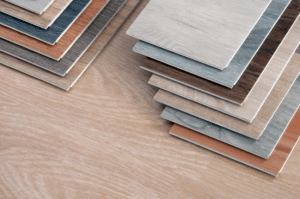
The difference between LVP, LVT, WPC, and SPC
While LVP refers to luxury vinyl planks, LVT stands for luxury vinyl tile flooring. The primary difference between them lies in their visual design and installation method. LVP is designed to mimic hardwood, while LVT is designed to mimic ceramic or stone flooring options. Both types of flooring offer a durable, waterproof, and low-maintenance solution for vinyl flooring.
In addition to LVP and LVT, you may also come across terms like WPC (Wood-Plastic Composite or Wood-Polymer Core) and SPC (Stone-Polymer Core). These are subcategories of LVP, with each offering unique benefits. WPC and SPC, for example, are considered rigid core flooring options, known for their water-resistant properties.
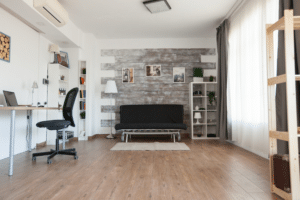
The Lowdown on LVP Installation Methods
LVP flooring is hailed for its ease of installation, but the installation method can vary depending on the specific type of LVP product you choose. These can range from glue-down, click-lock, to loose-lay.
The glue-down method involves adhering the vinyl plank to the floor using adhesive tape or glue. Conversely, floating vinyl planks can be installed using the click-and-lock method or the loose-lay technique, which doesn’t require adhesive. The click-and-lock method involves snapping and locking the planks into position, while the loose-lay technique simply involves laying the planks on top of your subfloor.
The Waterproof Wonders of LVP Flooring
One of the most significant advantages of LVP flooring is its water-resistant nature. Made from vinyl, a synthetic material designed to hold up against moisture and water, luxury vinyl flooring is an excellent choice for areas prone to spills, moisture, or humidity, such as kitchens or bathrooms.
It’s worth noting that while LVP is designed to be water-resistant, it’s crucial to clean up spills promptly to avoid damage. However, some vinyl plank flooring options, particularly those with a rigid core (WPC or SPC), are designed to be fully waterproof.
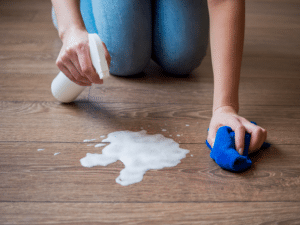
The Cost-Effective Alternative to Hardwood and Laminate Flooring
LVP flooring offers homeowners an attractive alternative to more expensive flooring types like hardwood and laminate. It emulates the aesthetic appeal of real hardwood flooring and the durability of laminate, all while being less costly to install and maintain.
In comparison to tile flooring, LVP is generally cheaper, especially if you opt for higher-end tile products like porcelain or natural stone. Installation of LVP is also less expensive as it is faster and easier, significantly reducing labor costs.
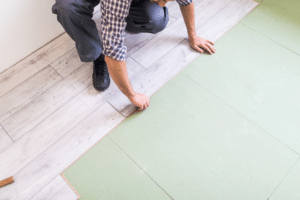
Is Luxury Vinyl Flooring Right for You?
Now that we’ve answered the question, “What is LVP flooring?” it’s time to consider if it’s the right choice for your space. With its durability, water resistance, wide variety of design options, and affordability, LVP is an excellent choice for many homeowners.
If you’re ready to explore LVP flooring options for your home, Jung Tile is here to help. With our expertise in vinyl flooring, we can guide you through the selection and installation process, ensuring you find the perfect LVP flooring for your needs. Contact us today to get started on your easy-to-install vinyl flooring journey.
Frequently Asked Questions
The downside of LVP flooring includes its susceptibility to fading under UV light and the fact that it’s not real wood, which may impact the resale value of a home. Additionally, the installation process can involve adhesives that emit odors and make future removal or replacement challenging.
LVP, or Luxury Vinyl Plank, refers to high-quality vinyl planks that closely mimic natural wood or stone and offer enhanced durability and features like waterproof cores. In contrast, standard vinyl plank flooring may not offer the same level of detail, thickness, or durability.
LVP is generally more water-resistant and offers a more realistic wood or stone appearance compared to laminate, making it a better choice for areas prone to moisture. However, laminate might be preferred for its cost-effectiveness and durability in high-traffic areas, depending on homeowner preferences and budget.
EVP, or Engineered Vinyl Plank Flooring, is a type of luxury vinyl flooring that combines a rigid core with a vinyl top layer, offering enhanced stability, durability, and water resistance. It’s designed to mimic the look of natural wood while providing the practical benefits of vinyl.


